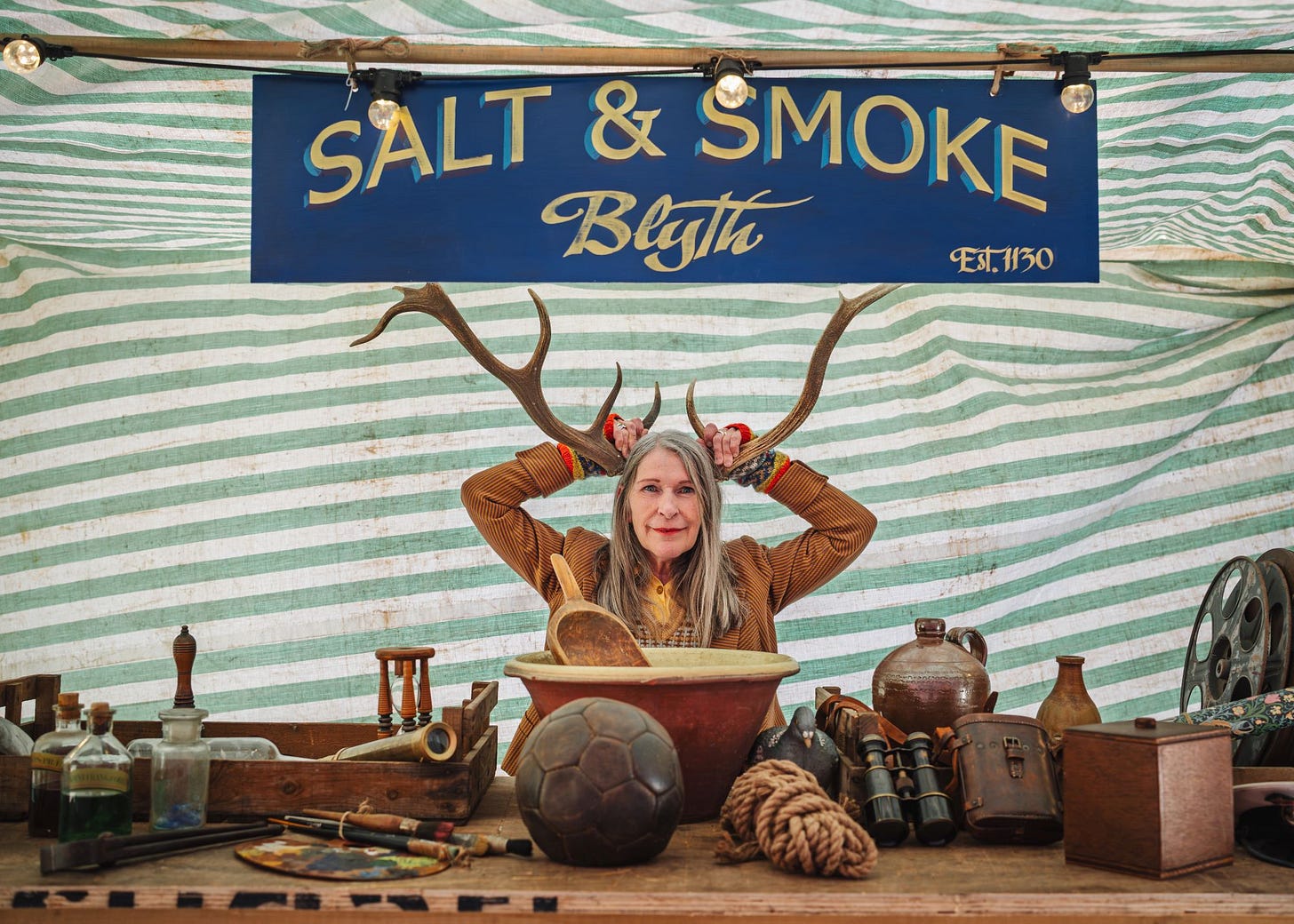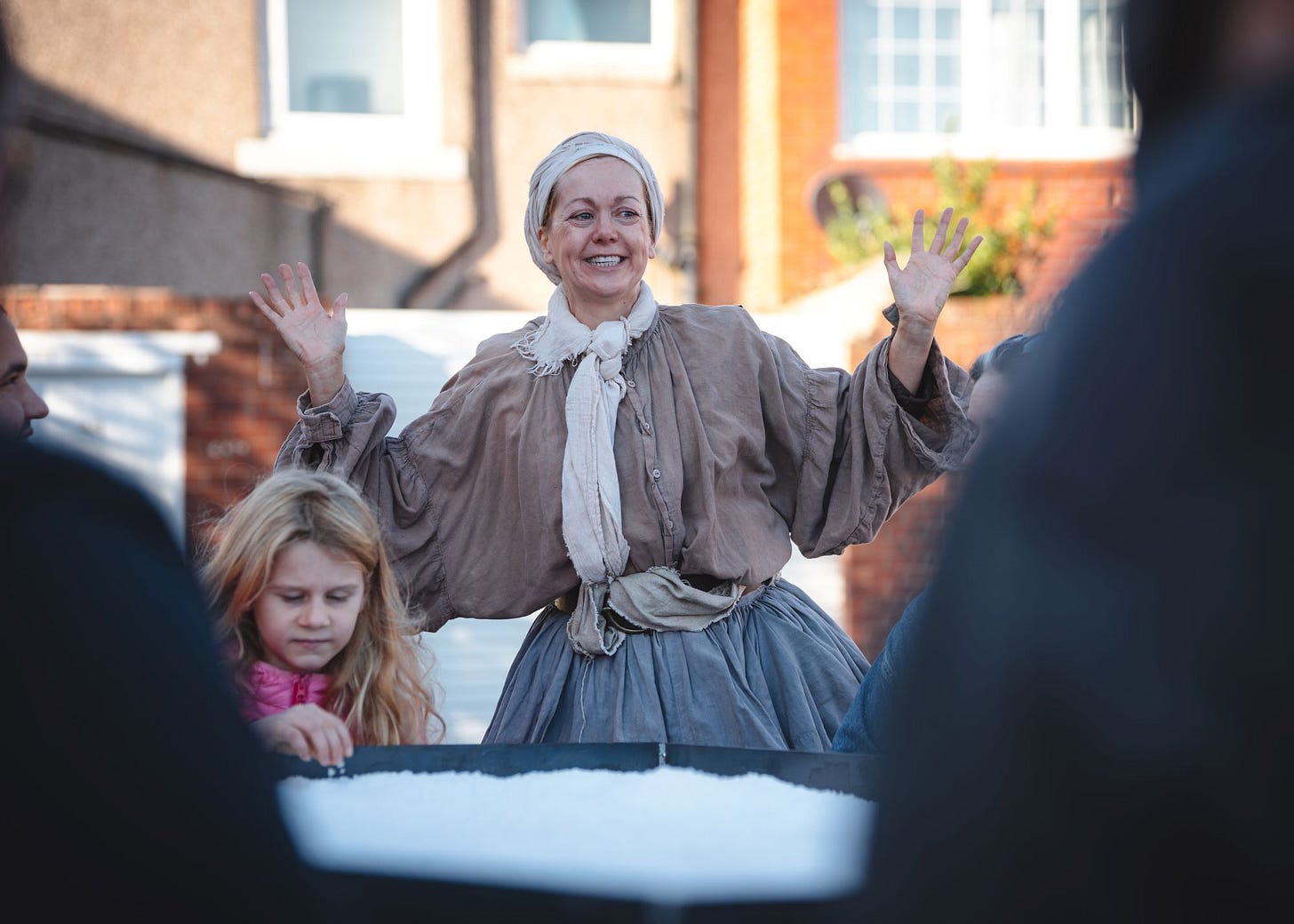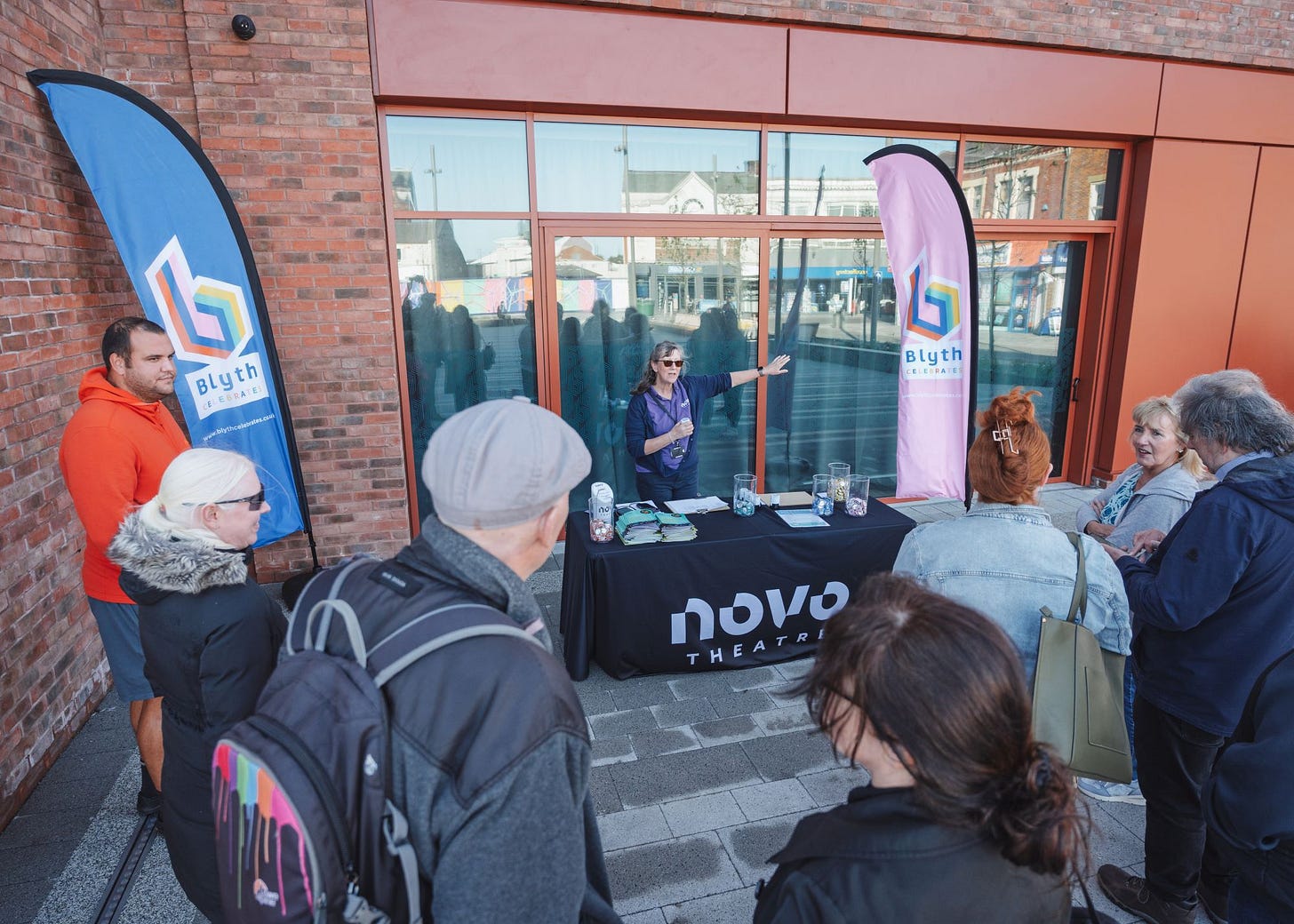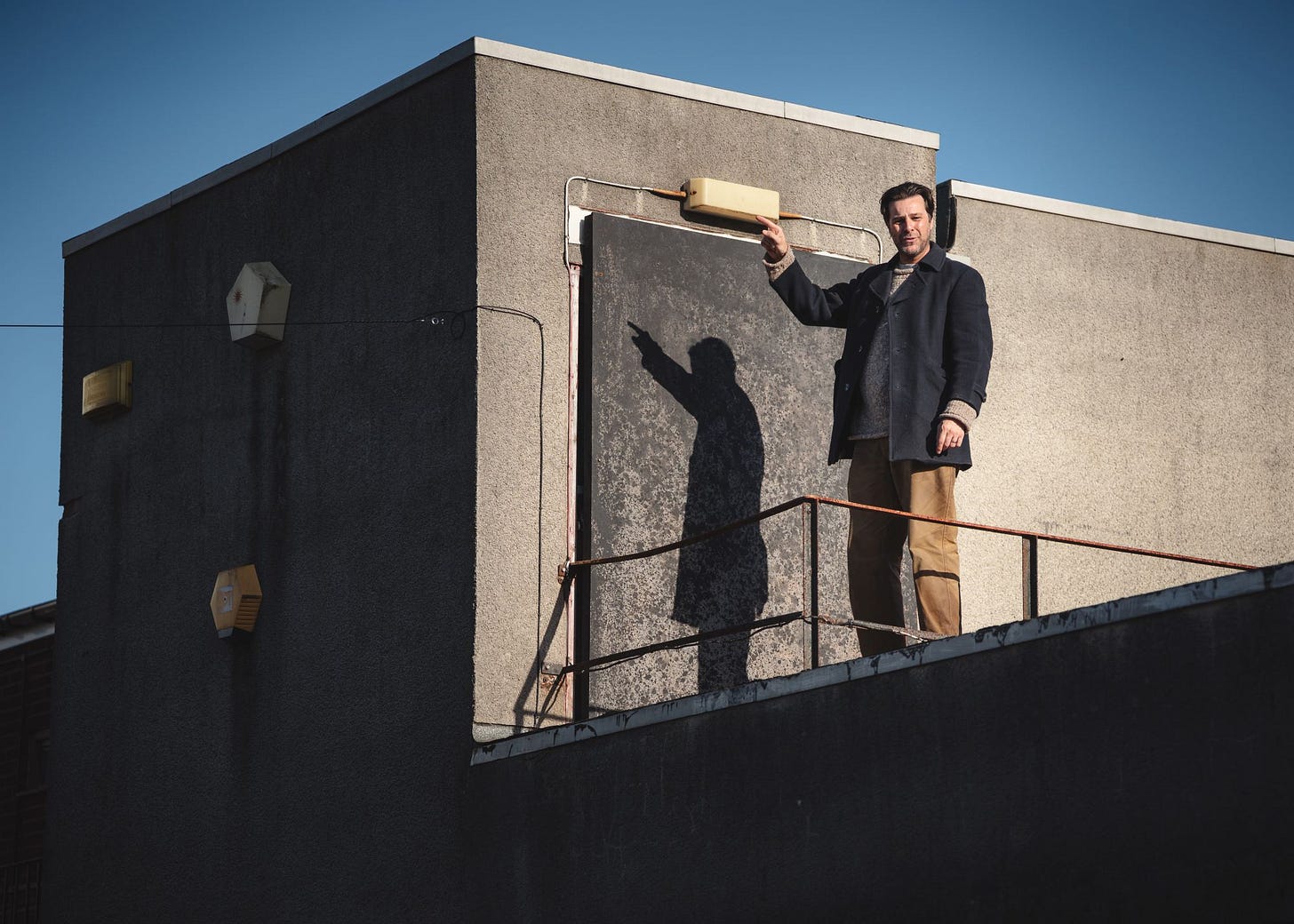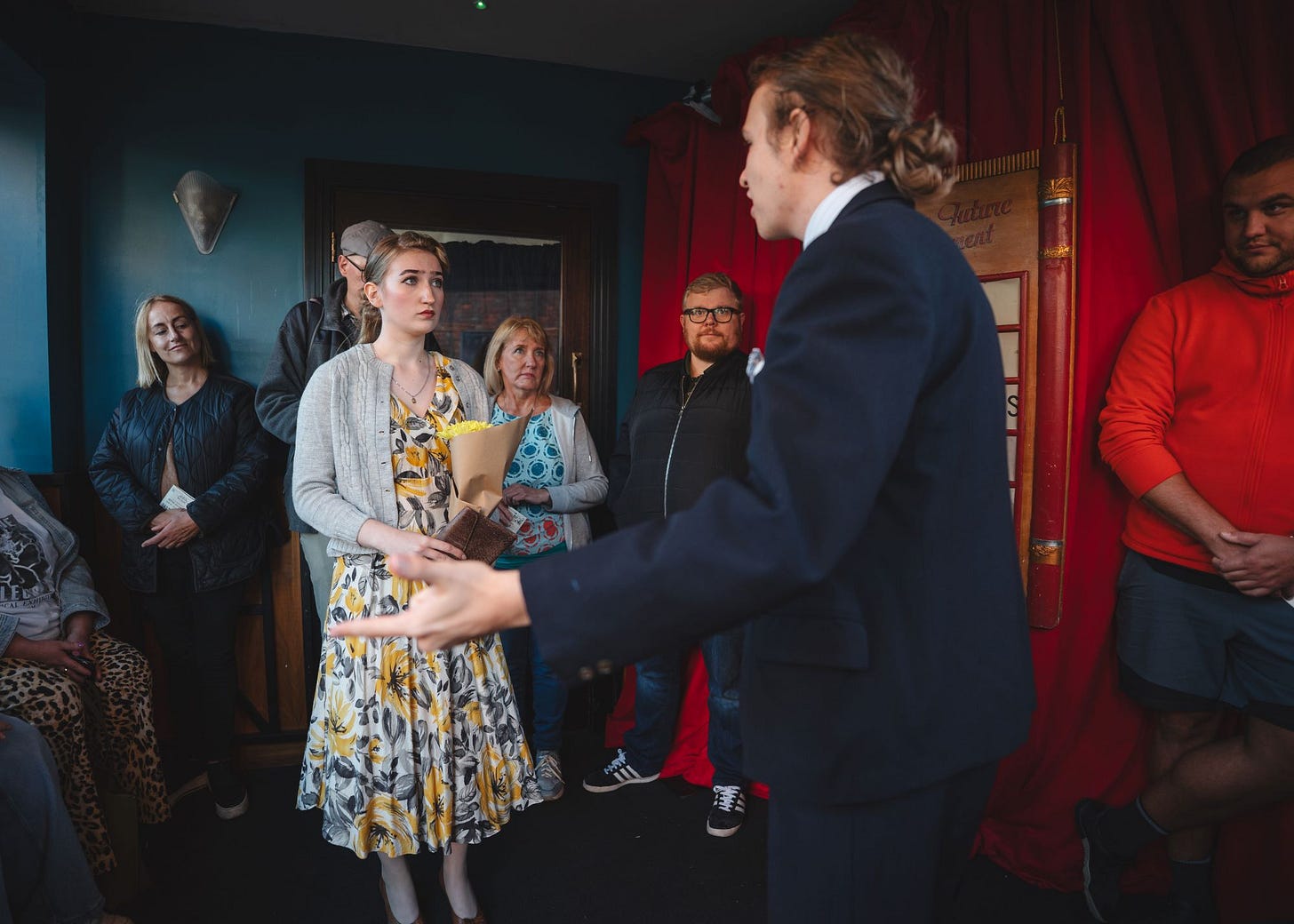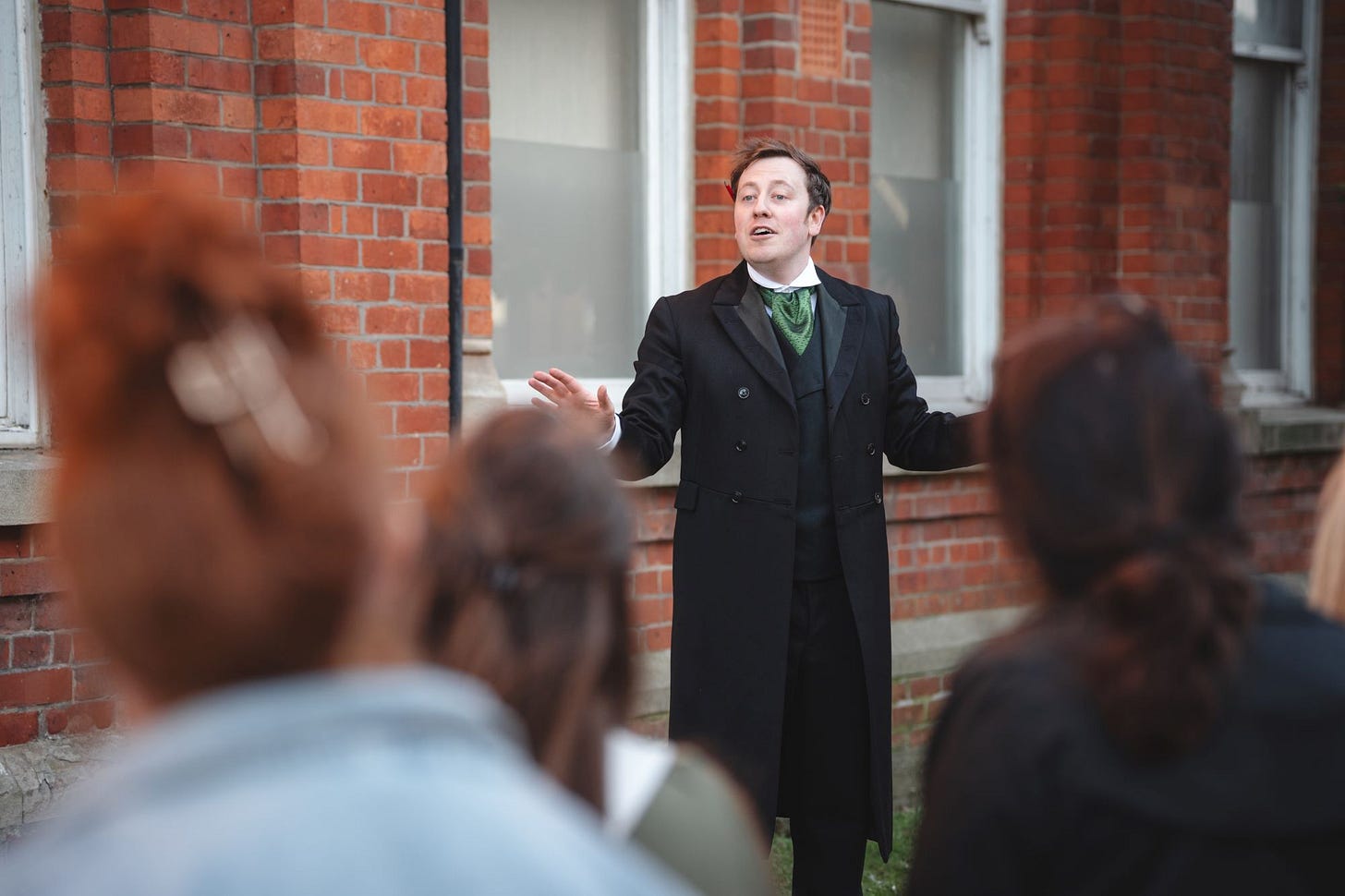REVIEW: Salt and Smoke, part of Blyth Celebrates
History brought to life by Novo Theatre
Ada Weaver, ‘Keeper of Stories’, is at her stall in the Market Place, her ‘not for sale’ curios displayed on the table before her.
“I make it my business to see everything, hear everything,” she says mysteriously.
She has been here a very long time. She flips an outsized hourglass to emphasise the point – and then shares with us some of the things she’s seen and heard, extraordinary things, adding considerably to our scant knowledge of Blyth.
In one flamboyant gesture she puts antlers to her head… but I’ll not spoil her story.
Then it’s on to Martha Salyer, described as ‘a Salt Worker’, and the benches arranged round her large pan of the stuff.
The chunky white crystals sparkle beneath the blue sky (I tempt fate by saying that on all my recent visits to Blyth, not a single cloud has marred its blueness).
Martha, a livewire in love with her trade, takes us back to 1760 when banquets of 20 courses, including cakes as tall as houses, could be enhanced by pinches of salt.
Evidently this precious gift from the sea was an important factor in the coastal town’s trading economy back in Martha’s day.
She looks well on it, eyes sparkling as she chatters away, some 300 years old and still going strong!
We are one of the small audiences lured to Salt and Smoke, latest attraction in the Blyth Celebrates cultural programme.
Having gathered at the Novo Theatre stall outside the new Market Pavilion, we have been sent on our way with a small map showing our town centre itinerary.
Like others before us and those to follow, we are on a journey of discovery, delving into Blyth’s history with the help of these characters from the past.
Our walk around the town’s broad streets exposes us to the here and now, the suggestion that a defiant local economy is more dependent these days on nail bars, hairdressers and beauty salons than salt.
If Blyth folk like to take care of themselves, there’s certainly no shortage of people prepared to pamper.
Rising above the old streets at one end of the town is a white block bearing the legend, in letters as blue as the sky, Catapult Offshore Renewable Energy, holding the promise of a more lucrative and sustainable future.
But a figure on a rooftop drags us back to the past.
It’s mariner William Smith with a story of adventure to share, of how he discovered Antarctica and was denied the glory by the snooty high-ups of the Royal Navy who felt it didn’t sit right with a working class lad from Blyth.
He bristles with righteous indignation and we bristle with him, all these years later. This was back in the 19th Century. Blyth has suffered other indignities since but has a habit of bouncing back.
On then to the Wallaw, a pub these days but with a corner of it reimagined back into its cinema heyday, and a fraught young couple out on a date.
He, Ron, is a bit tongue-tied. New to the dating game, you imagine, and fretting over the imminent loss of his job at the pit. She, Margie, cinema usherette, tries to snap him out of it.
We’ll never know if she succeeded but I’m betting she did, pretty as a picture and with steely determination. How many such encounters must the Wallaw have witnessed when it was the town’s popular picture house?
On our journey we learn of floods and fires, the latter from architect Mr A. A. Windle who recalls with much anxious gesticulation the loss of his precious drawings when a fire broke out in the waxworks museum.
You could say it was an accident waiting to happen.
In 1904 it did, the flames spreading with devastating effect to a local chemist’s shop, putting paid to Mr Windle’s plans but miraculously sparing five pianos and a supply of gunpowder.
The modern era’s much derided concern with ‘health and safety’ didn’t spring out of nowhere and if one message can be taken away from this it’s that Blyth’s old time residents, in common with others, flirted daily with danger and devastation.
But the place is still there and so are its people, surviving and aspiring to better things.
“What a great way to learn about history,” remarked one of my fellow trudgers appreciatively at the end of the trail.
And so it is – and all credit to Novo Theatre for making an intricate theatrical production run so smoothly and for organising the clement weather so efficiently.
Full marks, also, to the cast of actors – credited on the period map-cum-programme as Ms Jackie Phillips, Ms Melanie Dagg, Mr Micky Cochrane, Miss Darcy Lauren and Mr Freddie Barrett (the latter pair alternating as the cinema-going couple with Miss Anna Mullak and Mr Matthew Bryant) and Mr Robert Nicholson.
Salt and Smoke runs through this weekend with performances at regular intervals on Saturday (September 27) and Sunday (September 28). Tickets are free. Details from the Blyth Celebrates website.



